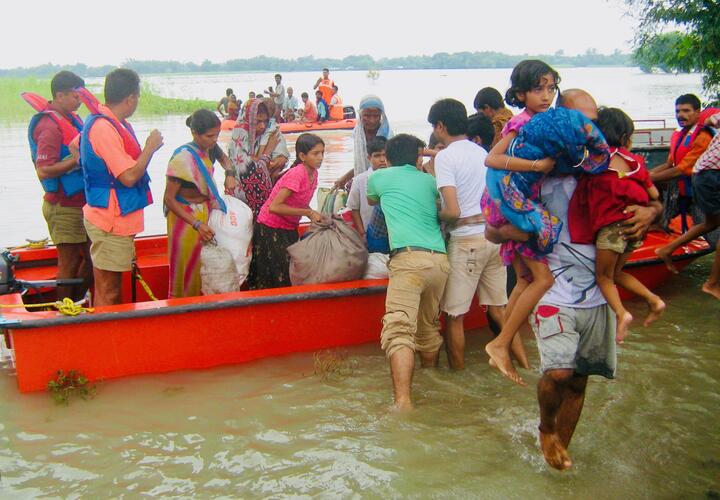Building Community-level Flood Early Warning Systems for Vulnerable Households in India
Climate change is disrupting lives and livelihoods; how can early warning systems spur adaptation and resilience in vulnerable communities? The team at Inclusion Economics is working with Google.org to increase the reach and effectiveness of a cutting-edge solution in India.
Flood early warning systems and community resilience
As climate change increases the frequency and severity of natural disasters like floods, lower-income countries - especially poor and marginalized communities - are typically the most at risk. Early warning systems (EWS) for floods can reduce fatalities, mitigate economic losses, and accelerate post-flood recovery – but the effectiveness of EWS is limited due to lack of infrastructure and scant evidence on how best to relay flood alerts at scale. In 2019, Google piloted a new AI-powered, Android-based flood forecasting and alert system in Bihar, a poor state in eastern India. But while the system’s flood predictions are highly accurate and can send alerts up to 24 hours in advance, many of Bihar’s most vulnerable citizens do not own smartphones.
Preliminary evidence suggests that flood alerts provided by Google, but delivered by trusted on-the-ground volunteers, spurred low-cost avoidance behaviors that reduced the adverse impacts of local flooding.
Since 2019, in a collaboration with Google.org, researchers from the Inclusion Economics team – along with colleagues from Tufts University - are conducting an intervention to estimate the household-level impacts of access to accurate flood alerts. The project trains grassroots volunteers in community outreach techniques and how to view and use Google's flood forecasting and alert system on Android phones. By generating new insights on how best to encourage flood avoidance behaviors over a set of highly-variable flood seasons, the research will offer important lessons for responding to the environmental consequences of climate change.





